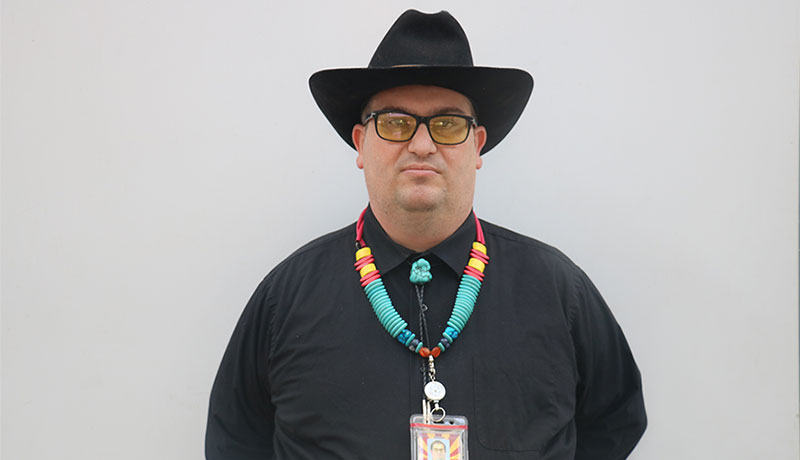DES Helps Client with Autism find Purpose through Gainful Employment
Imagine entering a room and hearing everyone’s conversations. Now, imagine you’re a small child with this heightened sense of hearing, and add a hypersensitivity to light and touch. The combination can make for a very scary world. This was reality for Gregory Allen, but thanks to his tenacity and intellect—and help from Arizona Department of Economic Security’s (DES) Vocational Rehabilitation (VR) program--Allen is now a thriving member of Arizona’s workforce.

In third grade, Allen began speech and physical therapy for a myriad of issues. He was nonverbal, easily frightened and overwhelmed. After several misdiagnoses, Allen was deemed to have high-functioning autism, along with other cognitive and physical limitations, including a heart condition.
The VR program is designed to help clients like Allen succeed in school and find gainful employment. For Allen, who describes himself as "focused, but distracted," this journey was not always easy. School was a struggle, but with help from VR, he utilized note-takers and spent extra time completing tests.
He found his first job at the customer service desk of a busy retail store. The lights, noise, and sometimes intense customer interactions proved to be too much for Allen’s hypersensitivities. The stress of the job took such a toll on him, he needed substantial time off before he eventually returned to VR, this time seeking career assistance.
Allen began regular one-on-one meetings with his VR counselor who helped him identify a career field that would better suit him. A career assessment identified that a job in computer science would marry Allen’s creative side with his high math skills and lend to a quiet, independent workplace. Allen liked the idea, and with help from VR, he returned to school to study computers. He continued to see his VR counselor who helped him prepare for his new career path with job development, interview skills, guidance on dressing professionally, soft skills development, and tips for thriving in the workforce despite his sensitivities.
"There aren’t a lot of programs to help adults with autism. Most are geared towards kids," said Allen. "VR is one of the only programs that help people like me with employment."
Allen eventually completed his education with a bachelor’s degree, three associate’s degrees, and multiple Information Technology (IT) certifications. His degrees helped him land his current role as a web developer for the Office of the Arizona State Treasurer. When he’s not at work, Allen volunteers his talents by doing website administration and security for a local charity that helps Arizona’s exploited children.
Allen says VR helped him find purpose through a career in which he excels.
"It would drive me nuts to be at home all day," he explained. "I have always wanted to work; I am a designer, and now I actually get to build things."
DES offers several programs to assist job seekers with disabilities:
The Vocational Rehabilitation (VR) program supports job seekers with disabilities in reaching their employment goals. Job seekers with mental or physical impairments (including mental illness and learning disabilities) may qualify for VR assistance. To learn more about the VR services available to job seekers though, please visit our VR webpage.
The Business Enterprise Program (BEP) supports blind and visually impaired entrepreneurs in the VR program operate their own merchandising businesses under Federal and State agency management. To learn more about BEP, please visit our BEP webpage.
The Ticket to Work program supports individuals, ages 16-64, who receive Social Security Disability Insurance (SSDI) or Supplemental Security Income (SSI) benefits and want to enter or re-enter the workforce. To learn more about the TTW program, please watch the Meet Ben! video or visit our TTW webpage.
The Transition School to Work program (TSW) is designed to assist students who have disabilities prepare for employment. DES VR counselors collaborate with school social workers to ensure that students are supported before and after graduation. For more information about the TSW program, please watch our TSW overview video or visit our VR webpage.
For more information about programs DES employment services for individuals with disabilities, please visit our Rehabilitation Services Administration webpage.
By Jillian Seamans

